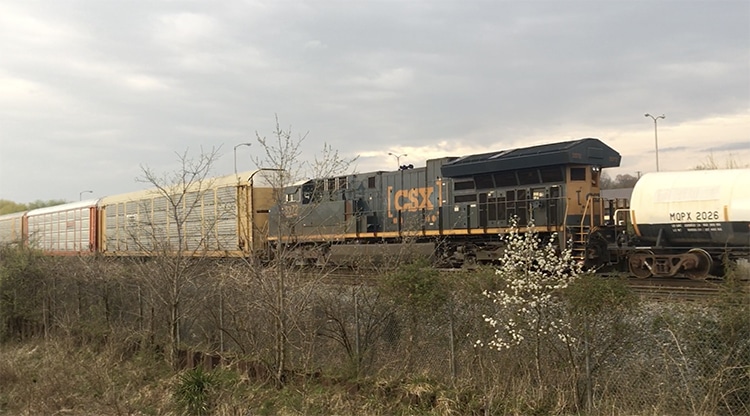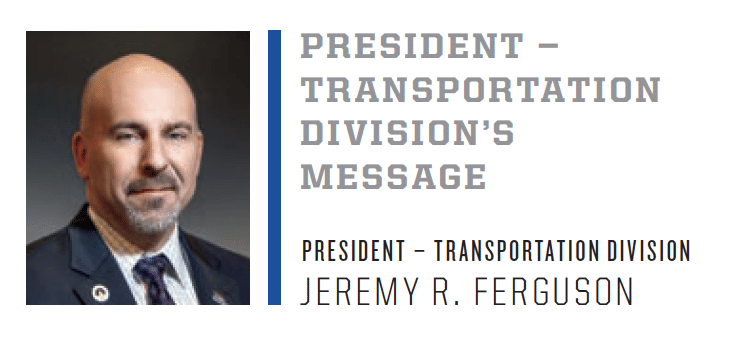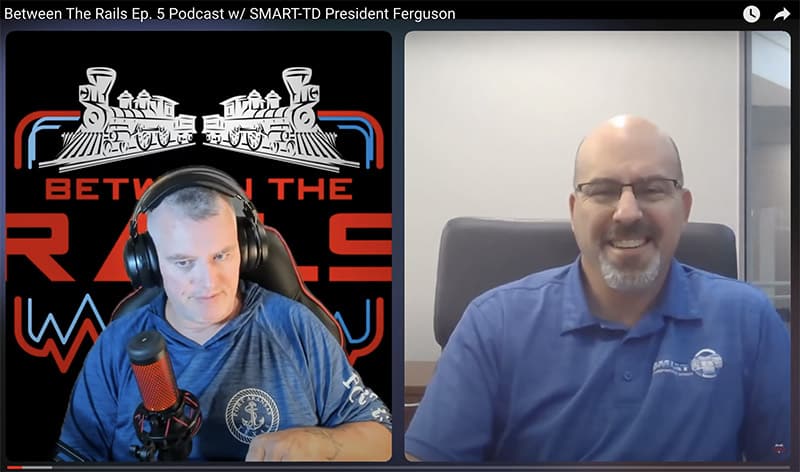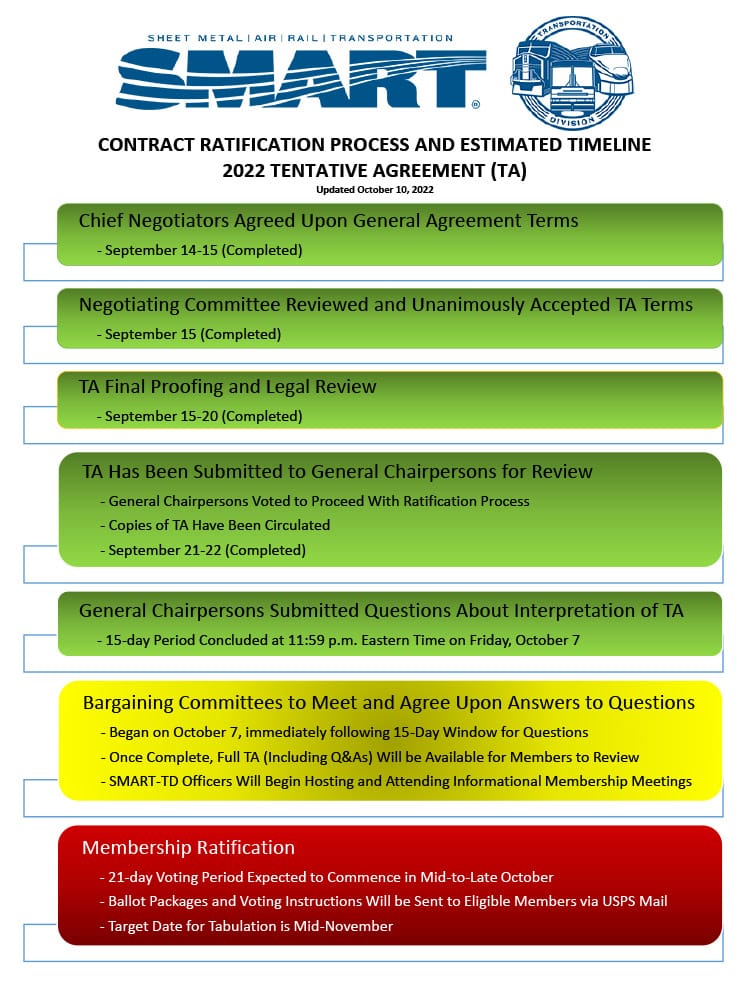Momentum is a powerful force. Right now, it is on rail labor’s side and our leadership is doing a great job of using it to the advantage of our membership. Monday, May 22, Joe Bennett, general chairperson of GO-851, and Brian Killough, general chairperson of GO-513 announced a tentative agreement with CSX to grant paid sick leave to its members.
This announcement continues the progress that has been made by their counterpart in the northern region of CSX (GO-49) and by the general committees of Norfolk Southern. Paid sick leave has been the goal of railroaders for generations. It is not only the quality-of-life issue that defines our industry but also a validation of the dignity of our profession. Not only were Brothers Bennett and Killough able to get paid sick leave in this tentative agreement, but they were able to gain traction in several other areas as well.
The tentative agreement synopsis is as follows:
- Provides five paid sick with the option to convert two personal days to paid sick days for conductors and trainmen.
- Unused sick days are converted to cash at the end of the year with the option to defer those payments into a 401(k).
- Incorporates the current 2023 CSX Revised Attendance Policy (the most lenient policy at CSX in decades) as a component of the CBA and is only subject to amendments under the provisions of the Railway Labor Act.
- Allows conductors to carry over up to 100 personal days from year to year rather than carrying over just 30 and losing the rest.
- Provides improved work/rest initiatives with the formation of a Joint Labor/Management Committee to implement “Smart Rest” options, which could provide for up to 24 hours off between tours of duty and voluntary rest day schedules.
- Reintroduces the safety boots program for trainpersons.
- Allows local union officials to be reimbursed for lost earnings when they mark off for vacation scheduling rather than just a basic day’s pay rate.
- Permits train service employees, when practicable, to drive themselves or their own crew within defined terminal switching limits under limited conditions.
“We thank CSX CEO Joseph Hinrichs and Executive Vice President Jamie Boychuk for exhibiting flexibility and working with our union in a collaborative manner in reaching this tentative agreement,” SMART Transportation Division President Jeremy Ferguson said. “This serves as a vital first step to giving T&E personnel the paid sick time they deserve, and I am hopeful this accommodation will be soon extended to the employees working under the jurisdiction of all other rail carriers.”
Brother Killough was quick to give credit for this TA coming together to SMART-TD Vice Presidents J.D. (John) Whitaker and Jamie Modesitt.
“Brother Whitaker did a great job taking the lead on these negotiations, and Joe and I are excited about the end results. Not only did our team put us in a position to get the paid sick time our people need and deserve, but we got CSX to put the attendance policy into the Collective Bargaining Agreement,” Killough said. “That is a way bigger deal than most people realize. They can’t make a unilateral change to the attendance policy if this passes, and you can’t put a price tag on that kind of progress.”
Bennett also brought the attendance policy up while he was discussing the advantages of this TA.
“I’ve been working for CSX since 1998, and in the span of my career, they have had 4 or 5 different attendance policies. Each one was worse than the one it replaced,” he said. “Now we put ourselves in a good situation where they can’t just change our lives by simply sending out a system bulletin.”
Another item in the agreement that both GCs brought up was the reinstatement of the boot program.
“When CSX stopped providing safety boots for our men and women, it made a statement. It couldn’t have been a big enough expenditure to have made a real difference to them, but the money and implied downgrade in respect meant a lot to our guys,” Bennett said. “Hopefully, CSX agreeing to reinstate the program is just as good of an indicator of what is on the horizon as losing it was.”
The boot program’s discontinuation was one of the first moves CSX made as E. Hunter Harrison embarked on implementing Precision Scheduled Railroading.
Both Bennett and Killough went out of their way to point out that this tentative agreement is not written in stone. Bennett wanted it known that “We worked long and hard on forming this agreement and getting our members the paid sick time they obviously deserve, but it is up to individual locals to vote on whether or not this agreement gets ratified.”
Per the SMART Constitution, each Local chair will be given the opportunity to cast a ballot, and the fate of this agreement will be decided by a simple majority of this vote.
Both GCs have reached out to the locals they represent and provided the language of the tentative agreement. They are working to schedule conference calls with their local leaders in hopes of answering any questions they might have and ensuring that accurate information is being provided to the crew bases so they can make their decisions based on facts.
SMART-TD is grateful to the leadership of Brothers Bennett and Killough for getting this agreement to this point. They have not only made us proud but have made strides to improve the lives of the SMART members they serve. We encourage all the members of these two general committees to read the agreement in its entirety and let your voices be heard in your local meetings. This union is in place to represent you. For SMART-TD to function properly, it requires that you take an active role, especially in matters of this level of importance.



